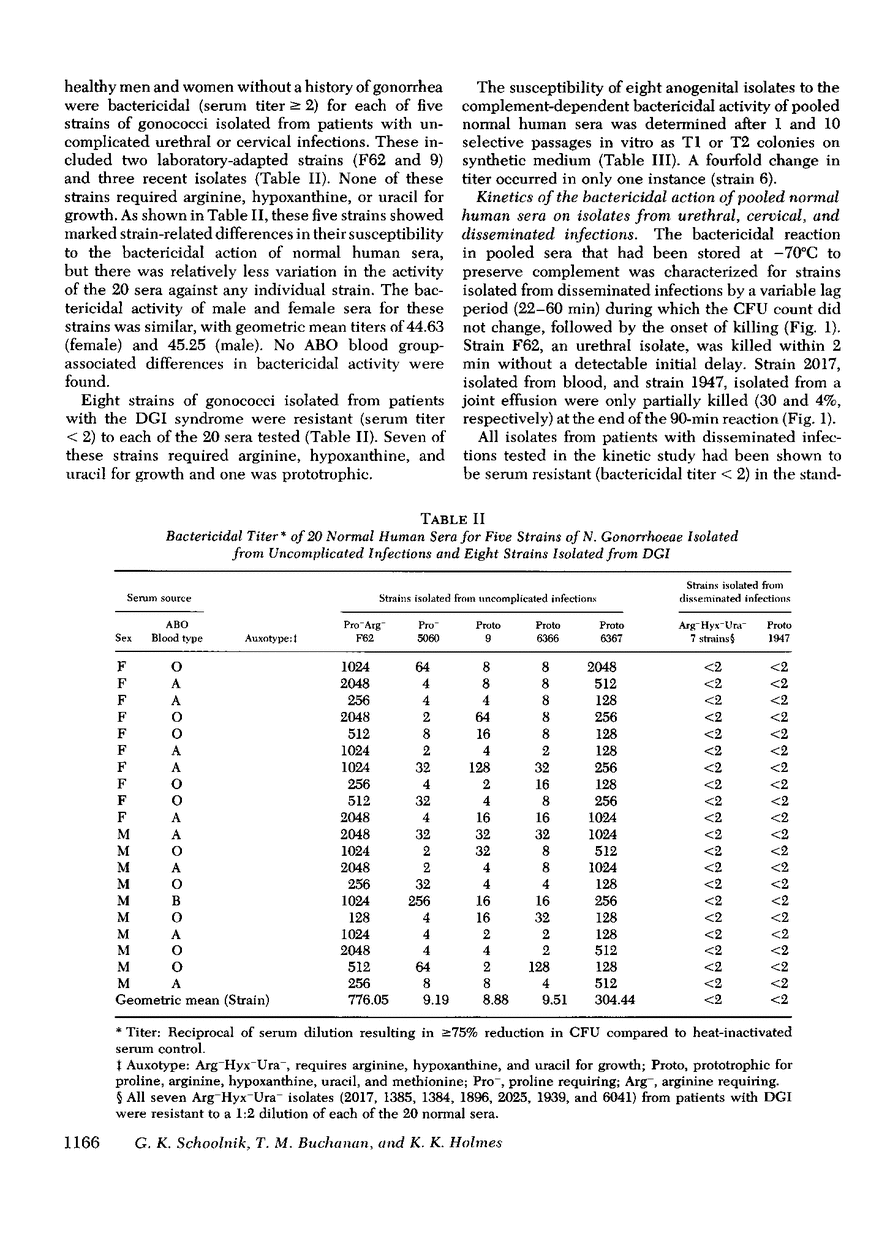Abstract
The susceptibility of strains of Neisseria gonorrhoeae to the bactericidal action of normal human sera was determined for isolates from patients with disseminated gonococcal infection and uncomplicated gonorrhea. Serum susceptibility was correlated with penicillin susceptibility and auxotype. 38 of 39 strains (97%) of N. gonorrhoeae from Seattle patients with disseminated gonococcal infection were resistant to the complement-dependent bactericidal action of normal human sera. 36 of these were inhibited by less than or equal to mug/ml of penicillin G and required arginine, hypoxanthine, and uracil for growth on chemically defined medium (Arg-Hyx-Ura- auxotype). 12 of 43 isolates from patients with uncomplicated gonorrhea were also of the Arg-Hyx-Ura-auxotype, inhibited by less than or equal to 0.030 mug/ml of penicillin G, and serum resistant. Of the 31 remaining strains of other auxotypes isolated from patients with uncomplicated gonorrhea, 18 (58.1%) were sensitive to normal human sera in titers ranging from 2 to 2,048. The bactericidal action of normal human sera may prevent the dissemination of serum-sensitive gonococci. However, since only a small proportion of individuals infected by serum-resistant strains develop disseminated gonococcal infection, serum resistance appears to be a necessary but not a sufficient virulence factor for dissemination. Host factors such as menstruation and pharyngeal gonococcal infection may favor the dissemination of serum-resistant strains. Since serum-resistant Arg-Hyx-Ura strains are far more frequently isolated from patients with disseminated gonococcal infection than serum-resistant strains of other auxotypes, Arg-Hyx-Ura-strains may possess other virulence factors in addition to serum resistance.
Authors
G K Schoolnik, T M Buchanan, K K Holmes
Other pages:
| 1163 | 1164 | 1165 | 1166 | 1167 | 1168 | 1169 | 1170 | 1171 | 1172 | 1173 |




